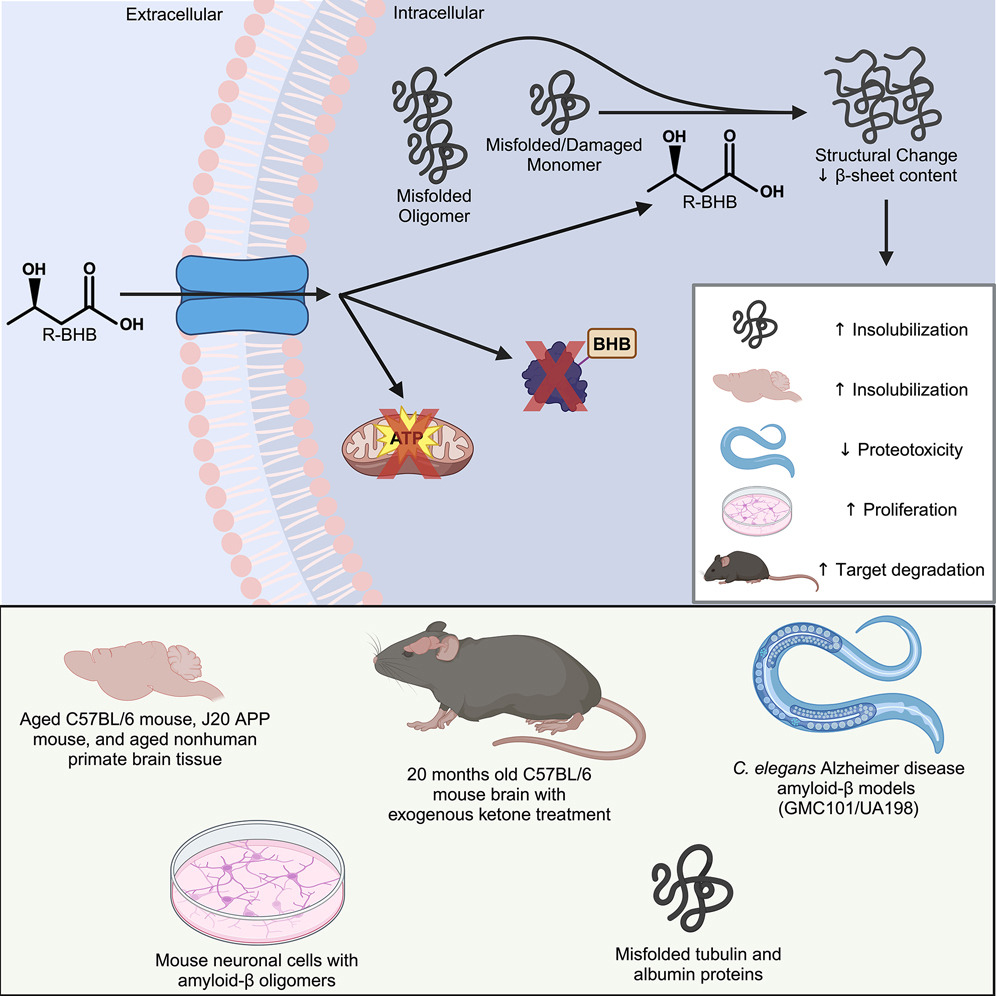
Ketone Bodies: A Promising Strategy for Enhancing Protein Quality Control in Brain Aging and Neurodegenerative Diseases

A recent study published in Cell Chemical Biology by researchers at the Buck Institute for Research on Aging has uncovered significant roles of ketone bodies beyond energy production, particularly in brain function related to aging and Alzheimer’s disease.
Key findings include:
- Direct Interaction with Misfolded Proteins: The ketone body β-hydroxybutyrate interacts directly with misfolded proteins, altering their solubility and structure to facilitate clearance from the brain through autophagy.
- Enhanced Protein Quality Control: Ketone bodies and similar metabolites have profound effects on the proteome, improving protein quality control mechanisms in the brain.
- Experimental Validation in Animal Models: Feeding ketone esters to mice resulted in the clearance of insoluble proteins, preventing pathological aggregation. In nematode models expressing human amyloid beta, ketone treatment restored mobility, indicating a reversal of protein-induced paralysis.
- Potential Therapeutic Avenue: These findings suggest that manipulating ketone body levels could be a powerful strategy to assist in the global clearing of damaged proteins, offering a potential therapeutic approach for brain aging and neurodegenerative diseases.
This research highlights a novel link between metabolism, ketone bodies, and aging, suggesting that ketone bodies act as signaling metabolites that can modulate protein homeostasis in the brain.
Image Credits: Sid Madhavan, Buck Institute for Research on Aging
Share this with your circle
